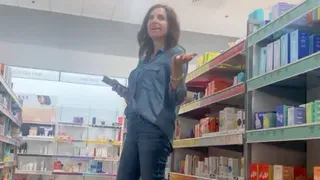June 4, 2020
How COVID-19 is Impacting Mental Health in the LGBTQ Community
READ TIME: 4 MIN.
The local bars and coffee shops are closed. Your therapist won't be back until next month. Summer vacation: canceled. There's no dancing, Taco Tuesdays or game night. You miss your friends, and your support system is in tatters.
It's just you, stuck in your apartment alone.
COVID-19 took a wrecking ball to our mental health. People are popping anti-anxiety pills like never before. The LGBTQ community, in particular, is suffering. Calls to suicide hotlines are exploding.
It's easy to see why. Humans are meant to be social creatures. We need that bond with other people. I suspect this is particularly true for the LGBTQ community since we depend so much on each other's support. Unfortunately, the coronavirus has other plans. The social distancing rules keep us away from our networks. We're unable to visit our friends and family when we feel down. The loneliness is painful.
Beyond the isolation, COVID-19 causes fear. We hear stories of hospitals overrun with patients gasping for air. We're worried about our grandparents, neighbors, and ourselves. But, health isn't the only thing we're concerned about. The economy is falling apart. Will we have a job tomorrow? How we'll pay next month's rent? The final nail in the coffin was the tragic death of George Floyd. We are all grieving.
We cannot allow ourselves to be overwhelmed by fear, anxiety, and depression. Now is the time for some self-care. Here are some ways you can improve your mood and beat back isolation.
Eat Right
Since many restaurants are closed, we're all forced to be quarantine cooks. The good news is that cooking for ourselves gives us the power to take charge of our nutrition. We have total control over what goes in our bodies, let's make sure it's nutritious.
Healthy food can reduce the symptoms of depression, according to a major study of the Mediterranean diet. People eating the Mediterranean diet felt happier, and the benefits were long-lasting. Here's the recipe. Crunch as many veggies as you can. Enjoy olive oil, nuts, fish, and turmeric daily. Avoid sugar. Before you know it, you'll look and feel better. You'll improve your mood, boost your energy, and reduce your risk of cancer, heart disease, and wrinkles. When the dance clubs open up, you'll be ready!
Moderate Exercise
This is a powerful weapon against depression. Regular exercise reduces anxiety and enhances mood. Be sure to include aerobic exercise and mindfulness-promoting activities like tai chi and Qigong in your weekly routines. If you have trouble exercising on your own, you can join socially distant walking groups. Gather a friend or two and walk or jog together, just be sure to stay six to ten feet apart. You'll feel motivated and reconnect with friends. Another option is to hire an online personal trainer. They'll keep you on track while remaining safely outside of your home.
Visit Friends Online
Since we can't go out to our usual watering holes, we need another way to maintain our social connections. Thankfully, technology makes it easy. Here's my tip: put away your dating apps and give Houseparty and Netflix Party a try. With Houseparty, you can reconnect with friends in group chats and play fun online games. Netflix Party makes it easy to share movie nights even when your home alone. Your movies are synchronized, so you're all laughing at the same jokes. Go ahead and share snarky comments in the sidebar while you're munching on popcorn.
Telemedicine
Are you unable to meet with your therapist because of quarantines? Check out the new world of telemedicine. Now, you can visit your physicians and therapists virtually, from the comfort of your living room. Have your counseling sessions while you're on your couch in PJs. Skip the driving and parking! Telehealth will save you from the clinic germs and is a lifeline while physical offices are closed. You may enjoy the convenience of telemedicine so much, you'll never want to go back to in-person visits. If you already have a mental health professional, there's a good chance that they'll see you online. If you need an online practitioner, Psychology Today has an extensive network. Talkspace can help you find LGBTQ-friendly therapists.
If you feel severe depression or are contemplating suicide, please contact a specialist on a crisis hotline. The National Suicide Prevention Hotline is free, confidential, and always open. Reach them at 800-273-8255. The Substance Abuse and Mental Health Services Administration (SAMHSA) has a 24/7 hotline 800-662-HELP. The Trevor Project has a 24/7 hotline geared towards LGBTQ youth. You can call them at 866-488-7386.
Get a Pet
You may have heard of quarantine kittens and pandemic puppies. Well, they're a real thing. People are flocking to animal shelters, and for a good reason. Pets reduce anxiety and make us feel happier. If you feel isolated and lonely, consider adopting a furry friend. It will be beneficial for you both. Just make sure you have the financial means and time to take care of a pet for the long-term.
COVID-19, quarantines, and the loss of social cohesion are challenging our community's mental health like never before. Please, call a friend, neighbor, or relative to check-in. They may be suffering in silence. We must support each other.
Gregory Charlop, MD, is the author of "Why Doctors Skip Breakfast: Wellness Tips to Reverse Aging, Treat Depression, and Get a Good Night's Sleep." He runs a telemedicine wellness clinic available throughout California.







